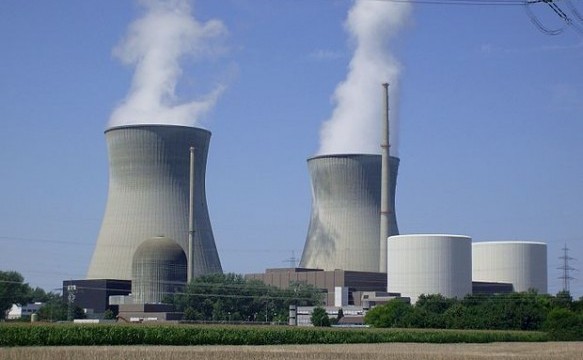
 Nigeria is endowed with oil and natural resources but the country cannot be said to have ever had adequate supply of electricity in the history of its electricity generation. This might get worse, as the country’s population increases and economic development is calling for more demand of energy.
Nigeria is endowed with oil and natural resources but the country cannot be said to have ever had adequate supply of electricity in the history of its electricity generation. This might get worse, as the country’s population increases and economic development is calling for more demand of energy.
The gradual diminishing of fossil fuels and the effort to save the eco-system from global warming has seen nations turning to alternative sources to meet their energy demands. It is therefore, imperative that renewable energy solutions be proffered to cater for Nigeria’s impending industrialization and its energy crisis which leaves many industries running at high cost and keeps many private homes in blackout.
Nigeria faces serious energy crisis due to declining electricity generation from domestic power plants occasioned by frequent gas cuts due to pipeline vandalism and associated problems. It is known that issue of power utilization is very sacrosanct to the socio-economic and technological growth of Nigeria. This has caused many electricity consumers to shift from high energy consuming electric bulbs to low energy saving bulbs in most residential and commercial outfits.
Renewable energy is energy that comes from resources which are naturally replenished on a human timescale such as sunlight, wind, rain, rides, waves and geothermal heat. It replaces conventional fuels in four distinct areas; electricity generation, air and water heating cooling, motor fuels and rural (off grid) energy services. Small developing countries such as Burundi, Kenya and Jordan are leading the world in investments in renewable energies as a percentage of GDP, so why can’t Nigeria key into this.
Solar energy for instance can be used to generate power in 2 ways; solar-thermal conversion and solar electric (photovoltaic) conversion which is the direct conversion of sunlight into electricity through photocells. It may be transformed directly into heat using solar collectors (inverter, charge controller) or directly to electricity using solar PV cells. It is also estimated that when 1% of Nigeria’s land area is covered with a solar technology of 5% efficiency, about 333,480MW of electricity may be produced at about 26% capacity factor.
The benefits of adopting renewable energy are so multifarious such as the use of renewable energy is renewable and sustainable and will never run out, it is constantly being replenished from natural resources. They have security of supply, unlike fossil fuels, which are negotiated on the international market and subjected to international competition, hence resulting in wars and shortages.
Renewable energy generally requires less maintenance than traditional generators. There is reduction in cost of operations because the fuel is derived from natural and available resources, creation of jobs due to people involved in it. For instance there are 80 utility-scald solar energy project that represent about 5600 megawatts of new electric power that will mean about 20 thousand permanent jobs. Renewable energy also is clean and pollution-free and is therefore a sustainable natural form of energy, unlike the nuclear and fossil fuel plants which belong to big companies. Renewable energy can be set up in small units and is suitable for community management and ownership which will break the jinx where electricity grid does not extend to remote areas.
The implementation of renewable energy technologies will also help to address the environmental concerns that emerged due to greenhouse gas emissions such as carbon dioxide (CO2), oxides of nitrogen (NOX), oxide of sulfur (Sox) as opposed to power generation from oil, natural gas and coal.
It is important that the government takes steps immediately to extend and expand the renewable energy sector. Efforts should be geared towards investments in solar and wind energy which does not cause harmful damage to our environment .Nigeria needs energy policy which stresses the development of renewable energy resources and technology. The development of renewable energy services is linked to many other sectors such as agriculture, small scale industrial enterprises and poverty alleviation. Government must play a useful role in promoting renewable energy technologies by initiating surveys and studies to establish their potential in both urban and rural areas.
Although, there are challenges in achieving this, the reasons include financial constraints, technology incapability, absence of a comprehensive National energy policy and low level of public awareness. If they can be addressed it will go a long way in actualizing renewable energy.
Government should subsidize the cost of importation of Renewable Energy Technologies (RET) most especially solar PV to bring down the high cost in Nigeria. Private individuals and organizations should be encouraged by appropriate authorities to invest in solar technologies in the country. Consequently, the wide gap between research bodies (universities, polytechnics and research institutes) and manufacturing industries must be bridged. Government should create more awareness on the advantages derivable from Renewable Energy Technologies (RET) such as solar technologies. Government can also consider placing restrictions on the importation of diesel and petrol engine generators because of its adverse effects on the environment even as global community accelerate towards clean (green) environment.
